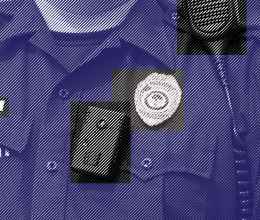CLEVELAND—On Tuesday, August 9 at 10 a.m. Cleveland City Council Public Safety Committee will hold a public hearing on an ordinance restructuring the City’s Civilian Police Review Board. The ordinance follows a mandate in the Department of Justice Consent Decree which directs the City to establish more citizen control of the review board. The ACLU of Ohio expressed concerns that the new ordinance provides insufficient power to the board to ensure police accountability.
“Giving the director of public safety exclusive power to remove members from the Civilian Police Review Board damages the board’s integrity,” said Christine Link, executive director of the ACLU of Ohio. “We cannot have the police investigating the police. There is an inherent conflict of interest in allowing the public safety director to remove members of the very board that sanctions departments under his control.”
The ACLU expressed concern that the Department of Public Safety will retain the ability to reject the board’s disciplinary recommendations.
“We cannot have meaningful civilian oversight of police if the director can toss out the citizen board’s recommendations for any reason,” said Link. “This leaves too much potential for interference that will undermine the board’s ability to build community trust.”
The ACLU emphasized that the ordinance fails to explicitly guarantee funding for the board, including not allocating funds for board member compensation. City Council is expected to pass the ordinance during their meeting on Wednesday.
“Full funding and a complete staff are necessary for the board to be effective in its duties. This is crucial to avoid a situation like what is happening with the under-resourced Office of Professional Standards, where hundreds of complaints remain uninvestigated,” Link said.
The Public Safety Committee public hearing will be held on Tuesday, August 9, 2016, at 10 a.m. in the Mercedes Cotner Committee Room 217 of Cleveland City Hall.
###
August 9, 2016: A previous version of this release indicated that the chief of police, rather than the director of public safety, would have the ability to remove members from the review board.








